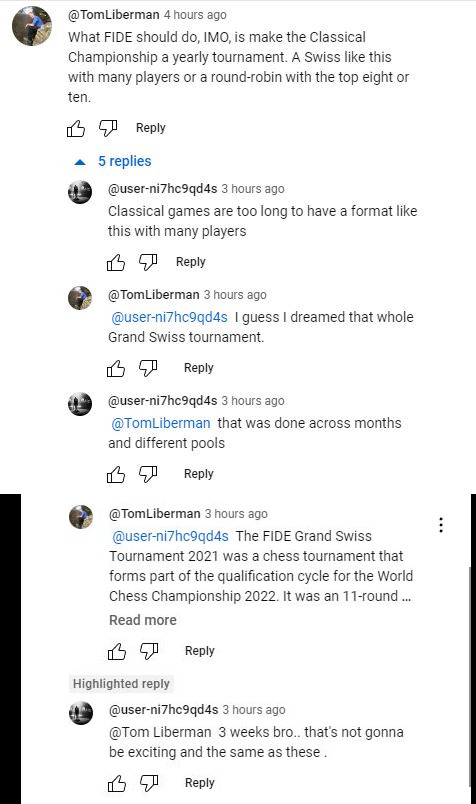I read and comment on a lot of news stories and I thought a recent encounter with a bad logic troll might be of some interest to you, my loyal and vast audience. I follow chess fairly closely and commented on the recently completed Rapid and Blitz Championship which resulted in a pair of victories for Magnus Carlsen.
This comment resulted in me getting involved with a bad logic troll. I appreciate a good troll as much as anyone and I’ve engaged in the practice a few times myself. In this case I thought the use of logical fallacies worthy of an examination.
The Backstory
Magnus Carlsen recently declared he will not defend his world championship title in classical chess. This means when a new champion is declared later this year, he will no longer be eligible to win all three of the main chess championships in the same calendar year. A number of people are lamenting this fact and such thoughts led to my original comment.
One of the reasons Carlsen is not defending his title is such a defense occupies two years of his time. Carlsen preference is he’d like a yearly tournament to determine champion and I echoed that in my original comment. See the image above.
The Bad Logic Troll Arrives
Cue stage right, the villain has arrived! His or her original argument is a classical chess game, which lasts many hours, is unsuitable for a Swiss style tournament with many players. Now, at this point I already suspected a troll but I’m always willing to engage in conversation.
My Rebuttal
I replied, with a bit of snark you’ll notice when reading the exchange, there are Swiss style tournaments playing classical chess on a fairly regular basis. That one of these tournaments is called the Grand Swiss. The fact that Swiss style tournaments with a hundred or more players are not only possible, but happen, seems to win the argument.
End of story, right? Troll wrong. Tom right. Time for a whiskey and celebration. Not so fast. The bad logic troll now tries lying. He or she claims the Grand Swiss tournament is played over a long period of time and involves pools. Both of these things are false. Either it’s a lie or just made up to support her or his original assertions. We haven’t gotten to the bad logic yet although certainly the behavior exhibited by my foe is egregious.
My Reply
I reply with simple facts copied and pasted from the Grand Swiss wiki page. The tournament lasts thirteen days and is not a pool event. Irrefutable, you exclaim. Victory for Tom! There’s no way the troll is slipping out of this one. Ah, my naïve friend, you haven’t dealt with trolls, have you? Just you wait.
The Bad Logic Appears
The troll counters with an argument completely different than the one originally made and shows a not unanticipated lack of basic math skills in adding up the time between two dates. This is the bad logic. Rather than admit her or his first argument was clearly defeated by a superior intellect, that’s me if you’re not following along, the troll goes down a different path. It really doesn’t matter what argument follows. It’s always the same and it’s a logical fallacy called Moving the Goalposts. When the original argument fails, just try a new one.
Conclusion
What to do when encountering this fallacy? Well, I suppose you can continue to argue but the person with whom you are debating is not worthy of the effort. Cut your losses, move on. That’s my advice at least.
Smile with smug self-satisfaction knowing you’ve won the argument because they, by moving the goalposts, conceded the point.
Smug Tom Liberman

